Fraud Victim

How can women avoid falling victim to financial scams and fraud ?
Financial scams and fraud can target anyone, including women. To avoid falling victim to these schemes, it's crucial for women to educate themselves about common scams like phishing, romance, and investment frauds. Safe online habits, such as securing devices and being cautious with personal information, are also essential. Regularly monitoring finances, using credit cards wisely, building a support network of professionals and trusted friends or family, and reporting suspected fraud immediately are further protective measures. Staying informed and vigilant significantly reduces the risk of financial loss due to scams and fraud.

What are the most common types of telecommunications fraud ?
Telecommunications fraud is a serious issue that affects millions of people worldwide. It involves using technology to deceive individuals or organizations for financial gain. Here are some of the most common types of telecommunications fraud: 1. Phishing Attacks: In this type of attack, cybercriminals send fraudulent emails or messages that appear to be from a legitimate source, such as a bank or a government agency. The message typically asks the recipient to click on a link or provide sensitive information, such as login credentials or credit card details. Once the victim provides the requested information, the attacker can use it to access their accounts and steal money or personal data. 2. Vishing Attacks: In this type of attack, cybercriminals use automated phone calls or live callers to trick victims into providing sensitive information over the phone. The attacker may pretend to be from a legitimate organization, such as a bank or a government agency, and ask for personal information or payment for a fake service. 3. Smishing Attacks: Smishing, or SMS phishing, is a relatively new form of telecommunications fraud that involves sending fraudulent text messages to victims' mobile devices. These messages often claim to be from a legitimate source, such as a bank or a government agency, and ask for sensitive information or payment for a fake service. Unlike traditional phishing attacks, which rely on email, smishing attacks use SMS messages to reach victims directly on their mobile devices.

What are some tips for avoiding telecommunications fraud ?
Telecommunications fraud can have serious consequences, but there are steps you can take to avoid becoming a victim. Be skeptical of unsolicited calls and messages, use strong passwords and two-factor authentication, keep software up-to-date, be cautious with public Wi-Fi networks, and educate yourself about common scams. By following these tips, you can protect your personal information and finances from potential fraud attempts.

Can I report telecommunications fraud to any authority ?
Telecommunications fraud is a serious issue that can have significant financial and personal consequences for victims. It is important to know where and how to report such incidents to ensure that appropriate action is taken. In this article, we will explore the various authorities to which you can report telecommunications fraud. The Federal Communications Commission (FCC) is the primary agency responsible for regulating interstate and international communications by radio, television, wire, satellite, and cable in the United States. The FBI is responsible for investigating federal crimes, including telecommunications fraud. Each state has an attorney general who is responsible for protecting consumers within their jurisdiction. Local law enforcement agencies also have the authority to investigate complaints and work with other agencies to pursue legal action against those responsible for fraudulent activities.
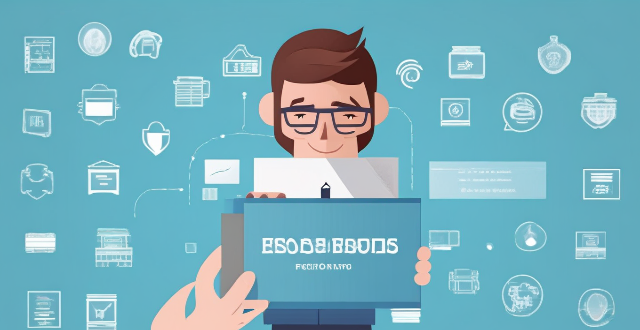
What are some signs that I may be a victim of telecommunications fraud ?
Telecommunications fraud is a serious issue with significant financial and emotional consequences. It's important to be aware of the signs that you may be a victim, such as unrecognized charges on your phone bill, unfamiliar phone calls or messages, changes to your service settings, suspicious account activity, and new accounts opened in your name. To protect yourself, contact your service provider immediately if you notice any suspicious activity, change your passwords regularly, monitor your accounts closely, and consider additional security measures such as two-factor authentication.
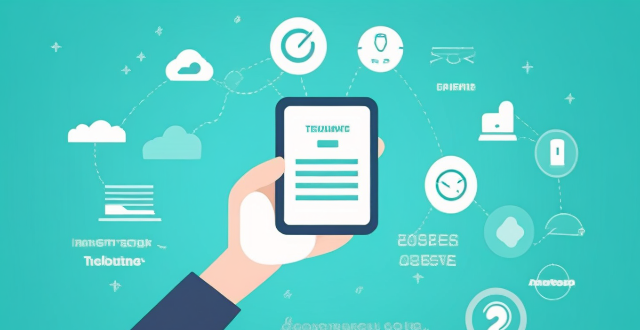
How can I protect myself from telecommunications fraud ?
Telecommunications fraud is a serious issue that can have devastating consequences for victims. It involves unauthorized access to personal and financial information through various communication channels such as phone calls, text messages, emails, and social media platforms. To protect yourself from telecommunications fraud, you should be wary of unsolicited calls and messages, use strong passwords and two-factor authentication, keep your devices and software up-to-date, be cautious with financial transactions, educate yourself and stay informed about the latest scams and fraudulent activities. By following these tips, you can significantly reduce your risk of falling victim to telecommunications fraud.

How can I prevent my personal information from being used in telecommunications fraud ?
To protect your personal information from telecommunications fraud, follow these steps: be cautious with personal information, use strong passwords and two-factor authentication, keep software and devices updated, be wary of suspicious emails and links, and educate yourself about common scams. By taking these precautions, you can reduce the risk of falling victim to telecommunications fraud.

How can I educate my family about telecommunications fraud ?
Telecommunications fraud is a serious issue that can have devastating consequences for individuals and families. To protect themselves from becoming victims, it's important to educate loved ones about the risks and ways to avoid them. Here are some steps to follow: Understanding Telecommunications Fraud: Make sure everyone understands what telecommunications fraud entails and how it works. This includes phishing scams, vishing attacks, smishing schemes, and tech support scams. Recognizing Red Flags: Educate your family on the common signs of telecommunications fraud, such as urgency, unexpected requests, too good to be true offers, threats or intimidation. Prevention Tips: Share prevention tips with your family to help them avoid falling prey to scams. These include staying informed, verifying sources, securing devices, using anti-fraud tools, being cautious online, limiting personal exposure, and reporting suspected fraud. Action Plan: Create an action plan for your family in case they encounter a potential fraud attempt. This includes stopping and thinking before acting impulsively, consulting family members for a second opinion, contacting authorities if convinced it's a scam, and documenting everything related to the suspected fraud for future reference.

How do I administer CPR correctly in an emergency situation ?
Administering CPR correctly in an emergency situation involves a series of steps to ensure the victim receives proper care until professional help arrives. The key steps include: checking the safety of the scene, calling for help, checking the victim's responsiveness, looking for an AED, opening the airway, checking for breathing, performing chest compressions if the victim is not breathing, giving rescue breaths (if trained), using an AED (if available), and continuing CPR until help arrives or the victim starts breathing normally. The quality of chest compressions is crucial, as they must be hard and fast enough to mimic a heartbeat and force blood out to vital organs.

How can I recover from telecommunications fraud ?
In summary, to recover from telecommunications fraud, one should immediately report suspicious transactions to their bank or financial institution, file a police report, and consider alerting relevant agencies. It's essential to protect personal information, update security measures, and educate oneself and others about scams. Legal action may be necessary for significant losses, and strengthening online security is crucial for future protection.

What should I do if I receive a suspicious call or message ?
Receiving a suspicious call or message can be unsettling and potentially dangerous. It is important to take appropriate measures to protect yourself and your personal information. The steps you should take when you encounter such situations are: 1. Remain calm and assess the situation objectively. 2. Do not share any personal information with the caller or sender of the message. 3. End the call or delete the message without engaging in any conversation. 4. Block the number or email address that contacted you. 5. Report the incident to the appropriate authorities, such as your local police department or the Federal Trade Commission (FTC). 6. Be vigilant and educate others about the risks of sharing personal information over the phone or through messages. By following these steps, you can minimize the risk of falling victim to scams and fraud attempts.
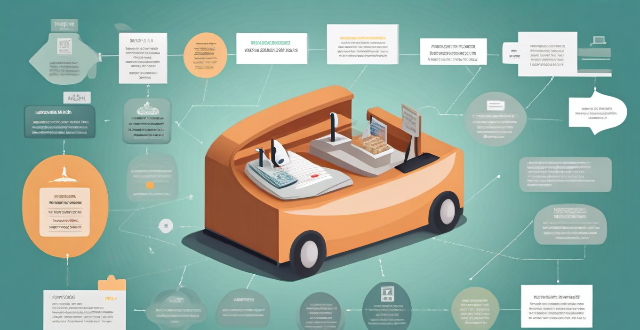
What is credit monitoring and why is it important in credit management ?
Credit monitoring is the process of tracking and analyzing a borrower's credit history, including payment behavior, outstanding debts, and changes in credit scores. It is important for early warning signals of potential default or delinquency, accurate risk assessment, fraud prevention, customer relationship management, and compliance with regulations. By continuously monitoring a borrower's credit history, lenders can update their risk assessments, prevent fraud, tailor their products and services to better meet their customers' requirements, and ensure they are meeting regulatory requirements.

Are there any online Black Friday sales that are just as good as in-store ones ?
Black Friday is a popular shopping event known for its massive discounts and deals on various products, both in-store and online. However, many shoppers wonder if the online Black Friday sales are just as good as the in-store ones. Online Black Friday sales have advantages such as convenience, a wider range of products, and easy price comparisons. However, they also have disadvantages such as shipping costs, limited stock, and potential scams and fraud. In conclusion, online Black Friday sales can be just as good as in-store ones, but shoppers should consider their personal preferences and needs when deciding whether to shop online or in-store.

How do I recognize a scam call or message ?
Scam calls and messages are becoming increasingly common, and it's important to be able to recognize them in order to protect yourself from fraud. Here are some tips on how to identify a scam call or message: 1\. **Unusual Requests for Personal Information** 2\. **Urgent or Threatening Language** 3\. **Unfamiliar Names or Organizations** 4\. **Requests for Money or Payment** 5\. **Poor Grammar and Spelling** 6\. **Sensational Prizes or Offers** 7\. **Verification Through Unofficial Channels** 8\. **Unsolicited Emails or Messages with Links** 9\. **Odd Timing** 10\. **Immediate Action Required**
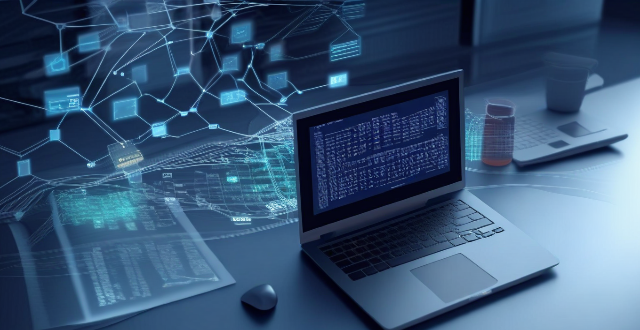
How do hackers gain access to computer systems ?
Hacking, also known as cyber hacking, involves the use of unconventional or illicit means to gain unauthorized access to a digital device, computer system, or network. This process is facilitated by exploiting security vulnerabilities or overcoming security measures to break into a computer or network with the intent to steal data. Hackers employ a variety of methods to gain access to computer systems, including: Exploiting Security Vulnerabilities, Phishing Scams, Malware, Brute Force Attacks, Man-in-the-Middle (MitM) Attacks, and Denial of Service (DoS)/Distributed DoS (DDoS) Attacks. The consequences of hacking activities include identity theft, financial fraud, data breach, and ransomware attacks. It is crucial for individuals and organizations to stay informed about potential threats and take proactive measures to protect their digital assets.

How do I perform the Heimlich maneuver effectively ?
The text provides a step-by-step guide on how to perform the Heimlich maneuver effectively in case of an airway obstruction emergency. It emphasizes the importance of proper positioning, forceful blows, checking for breathing, calling for help, and performing rescue breathing if necessary. The text also stresses the need for practice and skill in using the Heimlich maneuver before an emergency situation arises.

How has the rise of digital banking affected the need for financial literacy ?
The rise of digital banking has significantly affected the need for financial literacy. As more and more people turn to online banking platforms, it becomes essential for them to have a basic understanding of financial concepts and practices. In this article, we will explore how digital banking has influenced the importance of financial literacy and what individuals can do to improve their financial knowledge.

What is the most common type of cyber attack ?
Phishing attacks are the most common type of cyber attack, involving tricking individuals into providing sensitive information by posing as a trustworthy entity. They can be carried out through email, social media, or phone calls and involve spoofing, luring, and stealing. Examples include email phishing, spear phishing targeting specific individuals, and whaling targeting high-profile individuals. To prevent phishing attacks, individuals and organizations should educate themselves on identifying and reporting phishing attempts, implement multi-factor authentication, keep software and antivirus programs up-to-date, and use strong and unique passwords for each account.
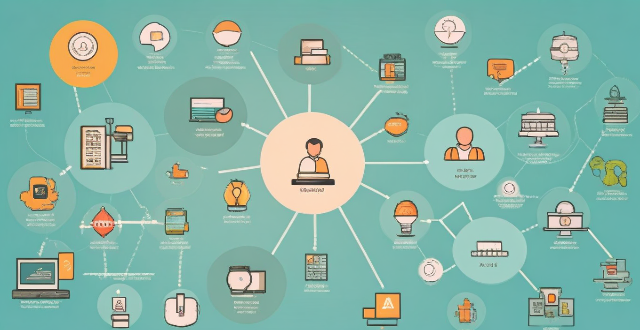
What is social engineering in the context of cybersecurity ?
Social engineering refers to the psychological manipulation of individuals or groups into divulging confidential information. This tactic is often employed by cybercriminals to gain access to sensitive data, systems, or networks without being detected. In the context of cybersecurity, social engineering is a significant threat that exploits human behavior rather than technical vulnerabilities. There are several types of social engineering attacks, including phishing attacks, pretexting, baiting, quid pro quo attacks, tailgating or piggybacking, vishing (voice phishing), and smishing (SMS phishing). To protect against social engineering attacks, organizations can implement education and awareness programs, policies and procedures, technology tools, and an incident response plan. By understanding the various types of social engineering attacks and implementing appropriate countermeasures, organizations can significantly reduce their risk of falling victim to these deceptive tactics.

What are some common security risks associated with using an iPhone ?
The article discusses common security risks associated with using an iPhone, including unauthorized access, malware attacks, phishing scams, and Wi-Fi networks. To protect against these risks, users should set strong passwords, enable two-factor authentication, avoid suspicious links and downloads, use a VPN when connecting to public Wi-Fi networks, and regularly scan their device for malware. By following these best practices, users can significantly reduce the risk of falling victim to security threats.
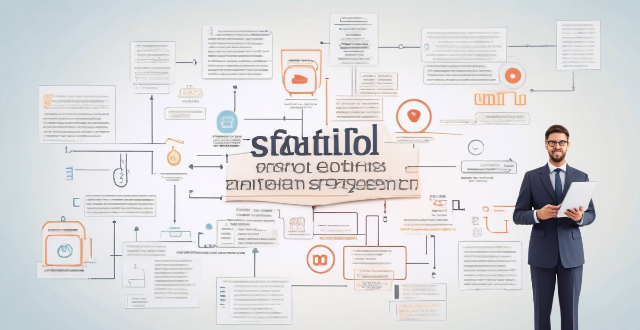
How does Fintech enable faster and more secure payments ?
Fintech has revolutionized payment systems by making them faster and more secure. Instant transfers, mobile payments, and automated options have streamlined the process, while encryption, tokenization, two-factor authentication, and fraud detection systems have enhanced security. These advancements benefit both individuals and businesses.

What are some common types of emergencies and how should they be handled ?
Emergencies can occur at any time and place, often without warning. Knowing the types of emergencies and how to handle them is crucial for ensuring safety and minimizing harm. In this article, we will discuss some common types of emergencies and their appropriate handling methods. ## Natural Disasters Natural disasters are events caused by environmental factors that result in widespread damage and loss of life. Some common types of natural disasters include earthquakes, hurricanes, floods, wildfires, and tornadoes. When faced with a natural disaster, it is essential to stay calm, seek shelter, follow evacuation orders, have an emergency kit ready, and stay informed about the situation. ## Medical Emergencies Medical emergencies refer to situations where immediate medical attention is required to prevent serious harm or death. Some common types of medical emergencies include heart attacks, strokes, severe allergic reactions, severe bleeding, and choking. When dealing with a medical emergency, it is crucial to call for help, perform first aid if trained, use automated external defibrillators (AEDs) if available, do not move the victim unless necessary, and stay with the victim until help arrives. ## Fire Emergencies Fire emergencies involve uncontrolled fires that pose a threat to people and property. Some common types of fire emergencies include house fires, wildfires, car accidents involving fire, and industrial fires. When facing a fire emergency, it is important to activate fire alarms/alert others, evacuate safely through designated exits, call emergency services immediately, do not reenter burning buildings, and use fire extinguishers appropriately if trained and safe to do so. In conclusion, being prepared for emergencies is crucial for ensuring safety and minimizing harm. By understanding common types of emergencies and their appropriate handling methods, individuals can respond effectively in crisis situations. Remember to stay calm, act quickly, and follow proper procedures to protect yourself and others.

How can women protect themselves from pickpockets and theft while traveling ?
Traveling, especially for women, comes with risks such as pickpocketing and theft. To protect themselves, women should stay alert, dress appropriately, secure their belongings, stay connected, be cautious about trusting strangers, and choose safe accommodations. By following these guidelines, they can reduce their risk of falling victim to theft and enjoy a safe journey.

How can smart contracts improve supply chain management ?
Smart contracts can revolutionize supply chain management by automating transactions, enhancing transparency, improving efficiency, enabling real-time tracking, and reducing risks. This decentralized and automated approach can save time, reduce costs, prevent fraud, and improve overall trust between parties in the supply chain.
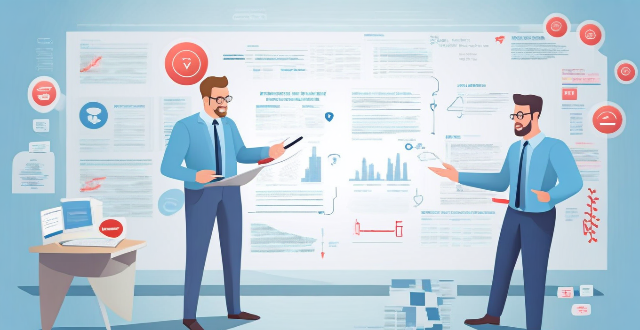
How can businesses benefit from implementing digital identity solutions ?
Digital identity solutions offer businesses enhanced security, improved customer experiences, increased efficiency, and scalability. They reduce fraud risks, protect data, streamline onboarding, personalize services, automate processes, and provide reliable data for better decision-making. These benefits help businesses stay compliant with regulations, save costs, and adapt to evolving technology.

What are the best ways to avoid pickpockets and theft while traveling ?
When traveling, it's important to take precautions to avoid pickpockets and theft. Research your destination, keep valuables close, stay aware of your surroundings, don't flash your valuables, trust your instincts, use locks and safes, be careful with your phone and camera, and consider travel insurance. By following these tips, you can reduce the risk of falling victim to pickpockets and theft while traveling.

How does digital identity verification work in online transactions ?
Digital Identity Verification in Online Transactions: A Comprehensive Guide Digital identity verification is a crucial aspect of online transactions, ensuring the authenticity and security of users. This process involves collecting personal information, verifying it against reliable sources, employing multi-factor authentication, using encryption techniques, and implementing monitoring systems to detect fraudulent activities. By following these steps, businesses can protect their customers' sensitive data and maintain trust in the digital marketplace.

What happens if my Cross-Border Payment transaction fails ?
If your cross-border payment transaction fails, itIf your cross-border payment transaction fails, it reasons such as insufficient funds it can be due to several reasons such as insufficient funds, invalid recipient information, transfer limit exceeded, technical issues, or fraud detection. It is important to identify the reason behind it and take appropriate action to resolve the issue and complete the transaction successfully.
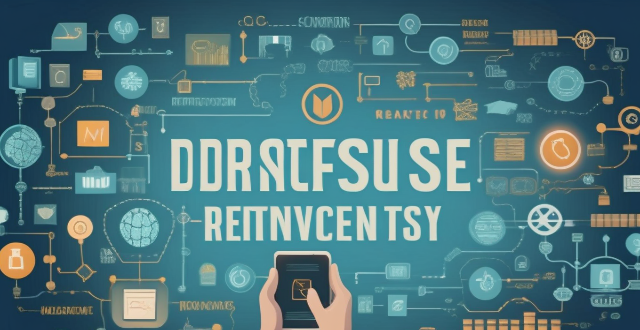
What are some common threats to digital identity and how can I prevent them ?
The text discusses the threats to digital identity and how to prevent them. It outlines common threats such as phishing attacks, malware and viruses, identity theft, data breaches, and ransomware. To prevent these threats, it suggests using strong passwords, enabling two-factor authentication, keeping software up-to-date, being cautious with emails and links, monitoring online accounts, using antivirus software, securing your network, and educating yourself about cybersecurity. By taking these precautions, individuals can reduce the risk of falling victim to threats to their digital identity.